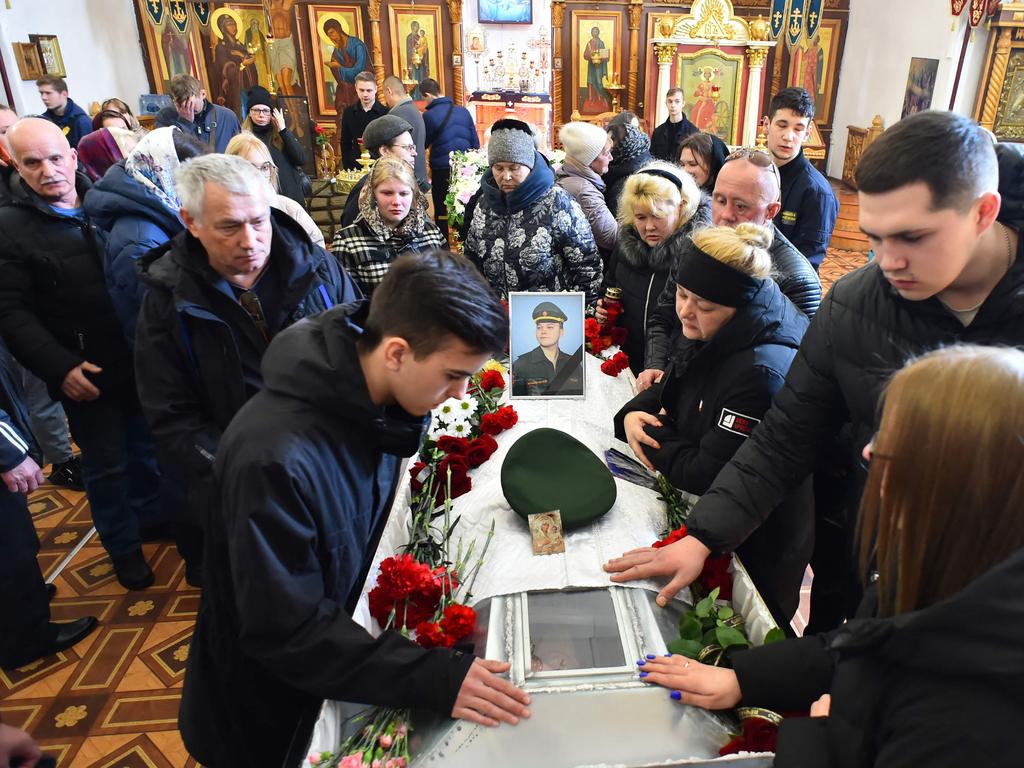Putin shrugs off sanctions and says Russia cannot be isolated
The President described Russia’s military operation in Ukraine as ‘absolutely clear and noble’.

Vladimir Putin has warned that Western attempts to isolate Russia are doomed to fail, and his Belarusian ally accused Britain of staging the massacre of unarmed civilians in the Ukrainian town of Bucha.
“We don’t intend to be isolated,” the Russian President said during a visit to the Vostochny cosmodrome in Russia’s far east. “It is impossible to severely isolate anyone in the modern world – especially such a vast country as Russia. The (economic) blitzkrieg that our ill-wishers counted on, of course, did not take place.”
Mr Putin, 69, described Russia’s military operation in Ukraine as “absolutely clear and noble” and praised the courage of Russian soldiers. “Our main goal is to help the people in Donbas,” he said, referring to the coalmining region in eastern Ukraine where Moscow-backed separatists have carved out two breakaway republics.
He again accused Ukraine of committing “genocide” against Russian speakers in Donbas. The allegation has been rejected by the International Court of Justice in The Hague and UN secretary-general Antonio Guterres.
President Alexender Lukashenko of Belarus, who accompanied Mr Putin to the spaceport, said Belarusian and Russian intelligence services had exposed a “vile” plot to frame Russia for the slaughter of civilians in Bucha.
Mr Putin also said Belarus had handed over documents to Russia’s FSB spy agency “proving” that dozens of images of dead, unarmed, civilians, as well as multiple interviews with survivors, were a “fake”, without giving details.
Russian forces captured Bucha, to the northwest of Kyiv, on March 12. Upon their withdrawal at the start of this month, scores of civilians were found dead in the streets, some with their hands tied behind their backs, and in their homes. Officials said more than 300 civilians had been massacred.
Mr Putin insisted he was forced to act to prevent Ukraine from becoming a springboard for a NATO attack on the country he has led for 22 years. “It’s clear that we didn’t have a choice,” he said. “It was the right decision.” He also accused Western countries of encouraging nationalism and Nazism in Kyiv. He also insisted that Russia’s “special operation” was going to plan. His government has confirmed the deaths of more than 1300 of its soldiers but its true losses are said to be much higher.
Ukrainian demands on security guarantees meant that potential peace talks had reached an impasse, he added. “Inconsistency about essential matters has been creating well-known difficulties in achieving final agreements on the negotiating track that would be acceptable to us. Unless that happens, the military operation will continue until the objectives set at the beginning of this operation are achieved,” he said.
Although Belarus is Russia’s closest ally, Mr Lukashenko, 67, has refused to send troops to support the war. He admitted last week, however, he had deployed special forces to Ukraine to rescue Belarusian truck drivers he said were being held by “scoundrels”.
Russian Prime Minister Mikhail Mishustin said last week that his country’s economy was facing its biggest challenge since the collapse of the Soviet Union in 1991. Annual inflation is expected to reach almost 24 per cent and GDP is set to shrink by 15 per cent. Russia has overtaken Iran as the most sanctioned country.
However, Mr Putin cited the success of the Soviet space program as an example of Russia managing to make huge breakthroughs under tough conditions. “Sanctions were total, the isolation was complete but the Soviet Union was still first in space,” he said.
Mr Putin said Russia would renew its lunar program by landing an unmanned spacecraft on the moon by the end of the year. The Luna 25 mission was initially scheduled for 2016 but has been plagued by delays. “We need to successfully stand up to the challenges of space exploration,” he said.
The Soviet Union sent the first satellite, Sputnik, into orbit in 1957. Yuri Gagarin became the first human to travel into space in 1961. Mr Putin’s visit took place on the 61st anniversary of Gagarin’s flight, which is celebrated in Russia as Cosmonaut’s Day.
The Times







To join the conversation, please log in. Don't have an account? Register
Join the conversation, you are commenting as Logout